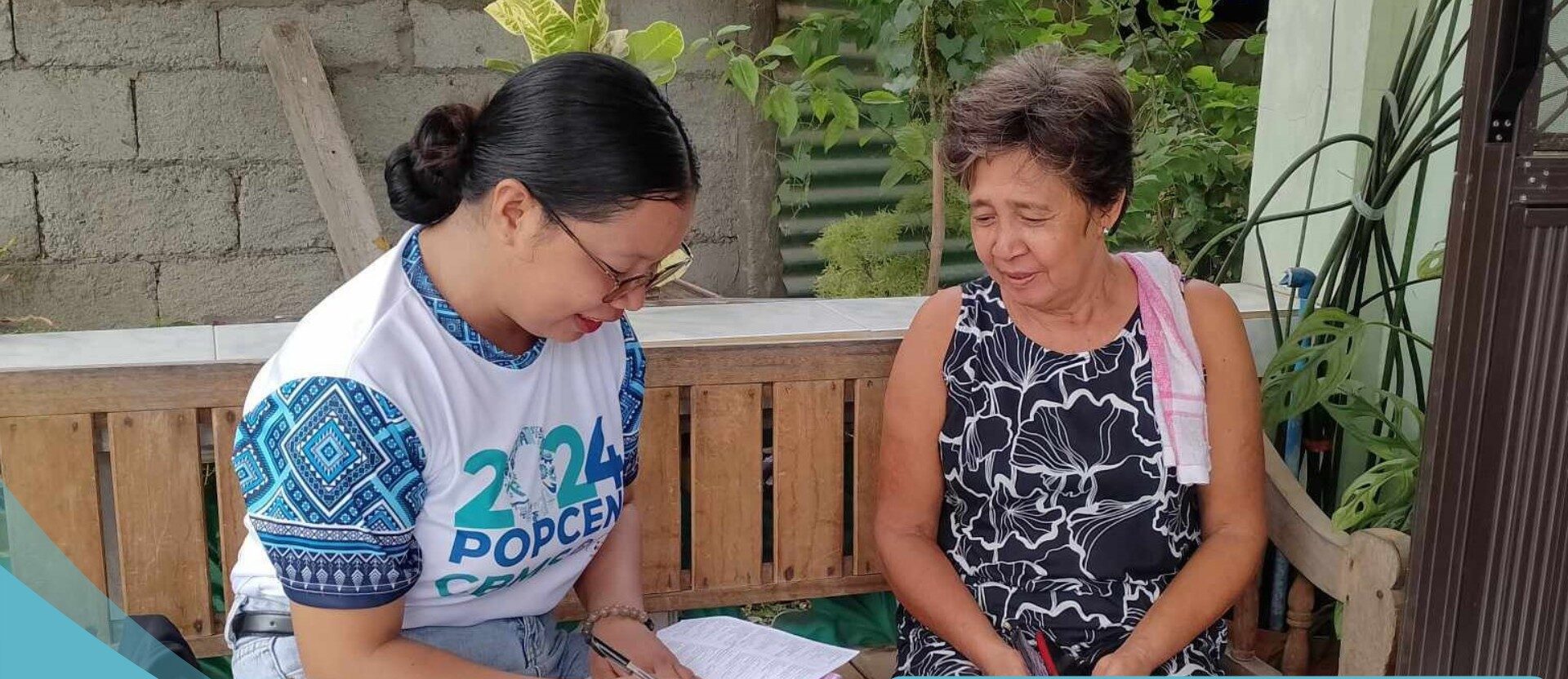
An enumerator interviews a member of a household for the POPCEN-CBMS. | PSA File Photo
CEBU CITY, Philippines — As the Philippine Statistics Authority (PSA) starts working to update the total number of the country’s population through POPCEN-CBMS or the Population Census and Community-based Monitoring System, it is crucial for the public to know who they are giving their household information to.
The data collection for the POPCEN-CBMS started last Monday, July 15, and will end on September 15.
Yes. There will be two activities that the data enumerators will be working with in their data gathering this time.
PopCen aims to update the total number of the population in the Philippines which was last conducted in September 2020.
Meanwhile, the CBMS targets to update the list of social protection beneficiaries which was last updated in 2019, according to National Statistician and PSA Undersecretary Claire Dennis Mapa.
Answering the questions for the PopCen is required, while for CBMS it is not. But the PSA is encouraging all three households to participate in answering the CBMS questions.
How to spot legit PSA enumerators
While the enumerators are scattered across the areas of their assignments, the public must be vigilant about who they are engaging with, in case someone not from PSA introduces themselves as one.
Here are some reminders on how to make sure that the person asking you interview questions are the official PSA enumerators.
The PSA enumerators will be wearing the PSA-required uniform and IDs.
These PSA enumerators will never ask for confidential information about your bank or financial accounts.
While part of the household profile questionnaire will ask if the household members have an active financial account, the enumerators will never ask for account numbers, passwords, ATM pins, and OTP.
Moreover, PSA enumerators will never solicit money or any material things in relation to POPCEN-CBMS.
The enumerators are also not allowed to advertise or market any products and services from the PSA if they ask for money in return. If you happen to encounter an enumerator who behaves like this, the agency advises everyone to report it to the nearest PSA office.
READ: PSA: 2024 population census kicks off on July 15
All personal information shared with the enumerators will remain confidential and protected under the Data Privacy Act of 2012.
Moreover, as to the enumerators, they have to coordinate with the barangay officials and inform them about the data gathering within the area.
Data items covered
Aside from your name, age, occupation, and number of children in the household, the enumerators will ask questions based on the household profile questionnaire (HPQ) and the questions will cover the following sections:
- Demographic Characteristics
- Migration
- Education and Literacy
- Community and Political Participation
- Economic Characteristics
- Entrepreneurial and Household Sustenance Activities
- Agriculture and Fishery Activities
- Family Income
- Food Consumption
- Food Insecurity
- Financial Inclusion
- Health
- Climate Change and Disaster Risk Management
- E-Commerce and Digital Economy
- Crime Victimization
- Social Protection Programs
- Water, Sanitation, And Hygiene
- Housing
The PSA will submit to the President in December 2024 the official population count and to NEDA the CBMS. And in the first quarter of 2025, the 2024 CBMS data will be turned over to the local government units (LGUs).
Using tablet for data gathering
According to Leopoldo Alfanta, chief statistical specialist at PSA-7, enumerators will now use tablets for data collection instead of paper and pencil.
The tablet will display a map showing the enumerator’s assigned area, ensuring they cover only their designated areas without overlap.
Alfanta noted that using tablets is more efficient because it aligns with the shift to digital transactions, saving processing time. Previously, data collected on paper required manual processing before being entered into computers.
With tablets, enumerators can upload their data immediately at the end of the day, and the system will prevent them from moving on if incorrect information is entered. This technology makes the process easier and more accurate, according to Alfanta.